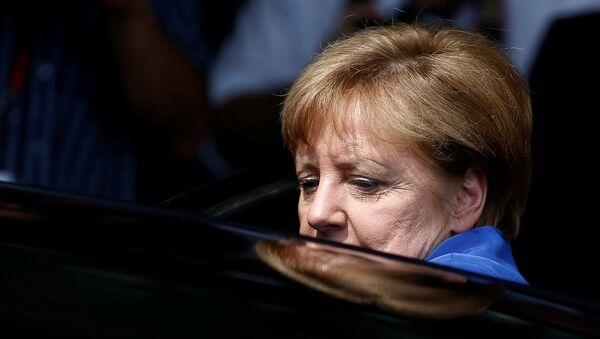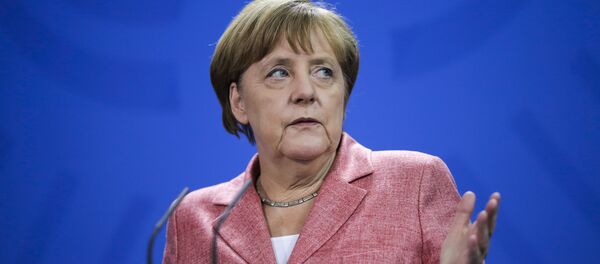According to the newspaper, Merkel "has become increasingly lonely" while Germany, which is the most economically developed country among the EU members, "is facing isolation".
"In contrast to Germany, the Mediterranean countries can't support migrants. And also in the east of the EU no one is going to follow the German dictatorship," the newspaper wrote.
The article noted that hundreds of thousands of young people in Greece, Portugal, Spain and Italy have to live on a small pension of their grandparents because of high unemployment rates and absence of any professional opportunities. Many of them try to leave their homeland and go to wealthier countries in search of a better life.
"Politicians of all kinds from Bratislava to Bucharest can't understand why they should host economic refugees from Pakistan, Bangladesh and Senegal, while hundreds of thousands of their own citizens have to emigrate for work to Western Europe, often even without their children," the article said.
"Except of the European Commission in Brussels, Angela Merkel hardly has some allies who would support her approach aimed at a supranational solution to the [migration] crisis which is predominantly culminating in Germany," the article said.
The newspaper noted that British Prime Minister Cameron whom Merkel maintained a demonstrative friendship is no more involved in the resolution of the crisis after Britain decided to leave the European Union. Moreover, Austrian Chancellor Faymann had to step down because of the mass migration issue, while Sweden recently joined the Visegrad countries, saying it won't accept any more refugees on its territory.
Taking into account these developments, Germany seems to follow "its special path" that other European countries don't want to support. Without Britain, "Germany practically remains the only major sponsor of the shaky European project," the article concluded.



